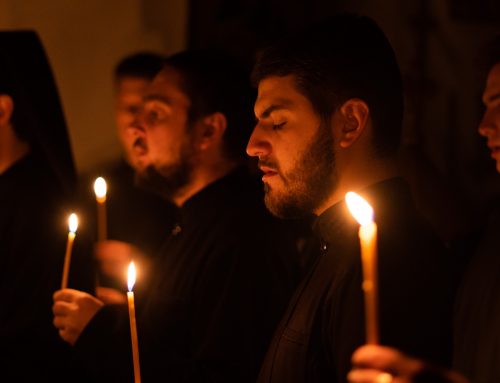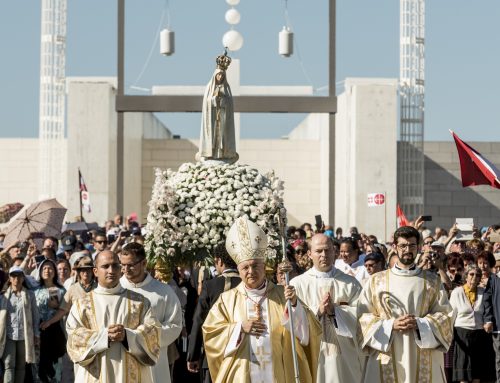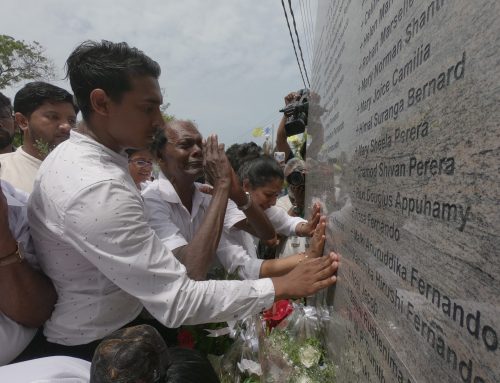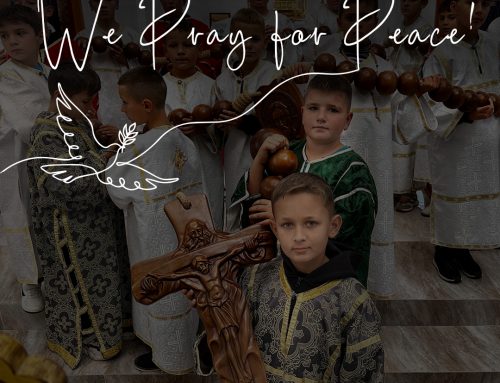Burundi 19.08.2015
Father Joseph-Désiré Nijimbere, priest of the Rutovu Parish in the Bururi diocese in Burundi, has well received the support from Aid to the Church in Need (ACN) he needed to renovate his presbytery. The new roof arrived at a time when it was most needed: “I believe that Christians had heart ache to see the presbytery of their priests to collapse one day. Now we live in healthy working conditions”, he writes to ACN. The Parish “Queen of Hope” of Rutovu includes two cities with nearly 32,000 Catholics of about 50 000 inhabitants. Faithful in the Rutovu Parish don’t live in villages as in other parts of Africa, but on hills, some 110km away from the capital Bujumbura. Father Nijimbere often comes home late at night exhausted from a day of walking in the hills. He’s happy to finally “live in a good building with a new roof without interference of any worry of rain that bothers us in our rooms.” But he still worries for his faithful, especially for the young people and the HIV/AIDS sick women. The country derives into total chaos. The institutions are paralyzed. The population lives in very precarious conditions.
“We live in a country that has experienced the atrocities of the war whose consequences continue to occur, particularly among youth”, writes Fr. Nijimbere. Their pastoral care is essential and has characterized the Parish life in 2014 – 2015, to help them, he explains, “to overcome obstacles that created ethnic and racial divisions for their peaceful coexistence.” Many meetings have been organized to find moments of open dialogue brightened by the Word of God and creating a climate of detente and reconciliation between young antagonists. Thus more than 1400 young participants celebrated from August 12th to 29th 2014 the arrival of the “Cross of Youth” in the Rutovu Parish in the context of consolidation of peace. “Just as salt gives flavor to food and preserves it from all rot,” writes Fr. Nijimbere, “young people must be a sign of hope in a world marked by so much violence, injustice , poverty in families with chronic diseases like AIDS … Just as light brightens darkness young people should be a bright sign in the world.” This crucial event crown years of catechesis and work on “Small Christian Communities”: all Christians living on the same hill share the same water source and even the same firewood. They know each other, help each other and still meet weekly in one place. They built a chapel for the sharing of the Word of God and also their common concerns. The pastoral care of “Small Christian Communities” is “a pastoral of proximity” explains Fr. Nijimbere: “I just spent twelve years of 14 years of ministry in this Rutovu Parish. I know almost all families, those who are doing well, as well as those who are in need. Like Jesus, the shepherd who cares for the sick sheep and those who don’t come to Church to find the strength in His treasures which are the sacraments.” The “Small Christian Communities” pastoral care put into practice the notion of “Church Family of God” adopted by the whole Church in Burundi as well as in the diocese of Bururi. The bishop of the diocese, Mgr. Venant Bacino, is himself a native of the Rutovu Parish, which celebrates this year of 2015 a double jubilee: the Golden Jubilee of Mgr. Venant Bacino priestly ordination and the Diamond Jubilee of 75 years of the Parish on September 15, 2015. Placed from its creation on after World War II under the protection of the MostHoly Virgin Mary, the Parish received the patronal name “Queen of Hope”. Its development was not without incident through the years that have cost, so Fr. Nijimbere, “the lives of many innocent civilians respectively in 1965, 1969 and 1972 with the genocide of 1972 and 1993. A few years after the bloody events of 1972, the appearance of the dictatorial communist regime of President Bagaza had obliged the missionaries to return home in Europe.” This marked the beginning of over ten years of persecution. The Parish has suffered because its implantation was not yet concrete enough. And the current tensions weigh on a poor population. Living on a mountainous and arid soil, it doesn’t’ brave only the weather, but above all the lack of security, “which risks”, so Father Joseph-Désiré Nijimbere, “to degenerate into a new rebellion”, after the outgoing President was re-elected for the third time. The climatic events especially were the main cause for the church’s and rectory poor condition: the Aid to the Church in Need’s support allowed the priest to pay roofers artisans. The other work was done by the faithful. The money saved helped to build a house of nine rooms for seminarians visiting the “Small Christian Communities” during the summertime. Previously they had to sleep at four in the same room. The house named “Regina Pacis” will also serve as home to Christians who come to meetings.
Claude Piel.







